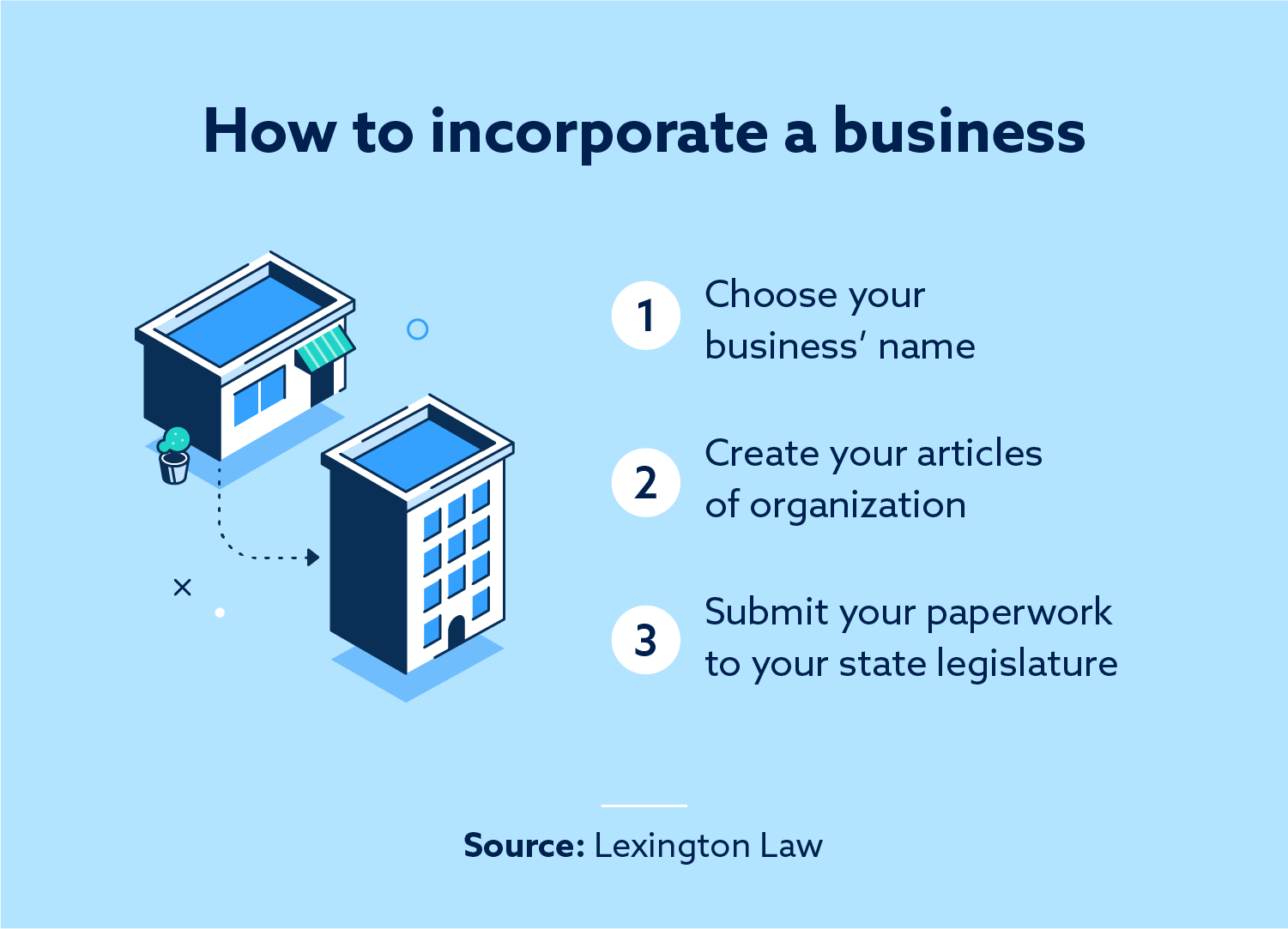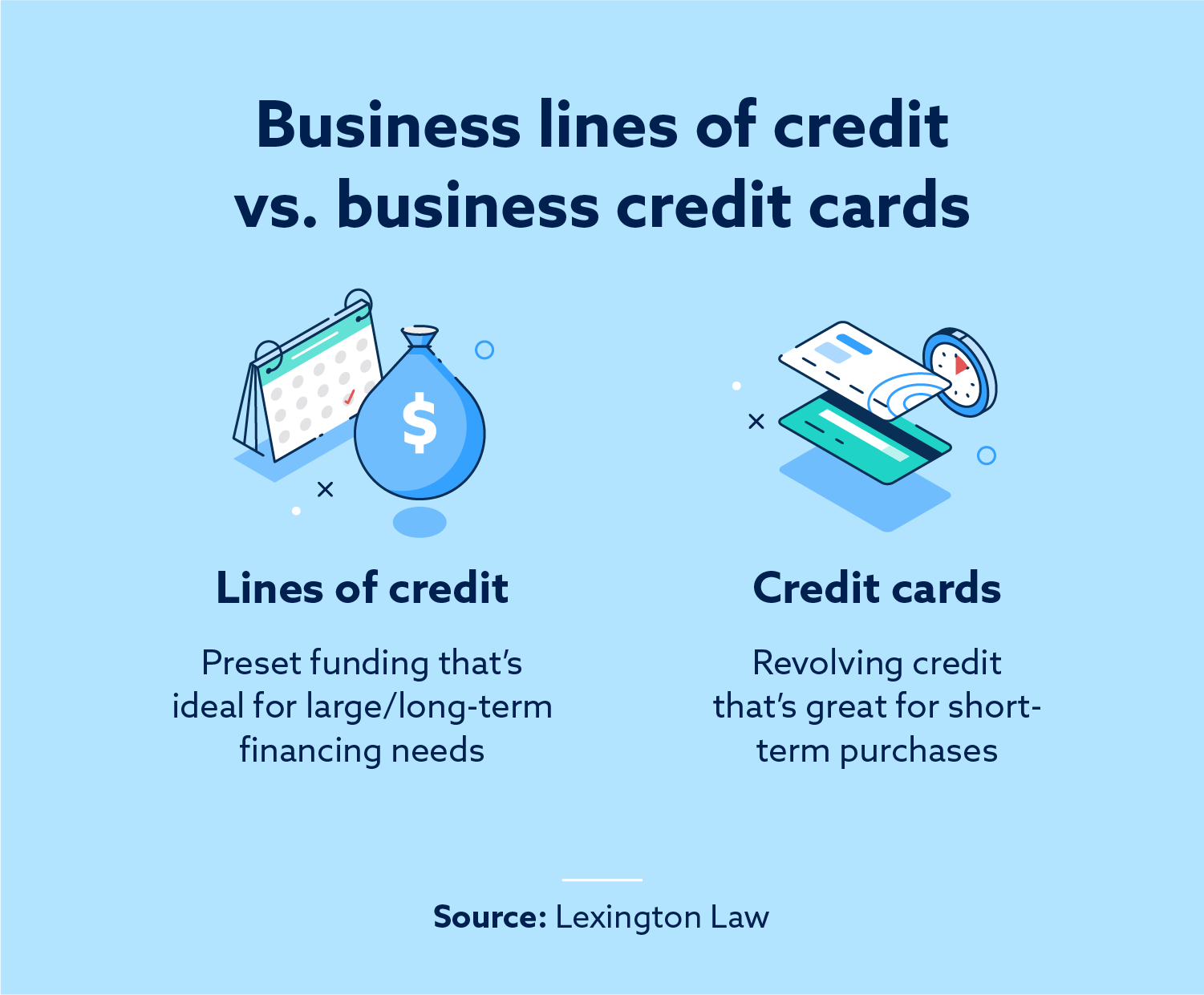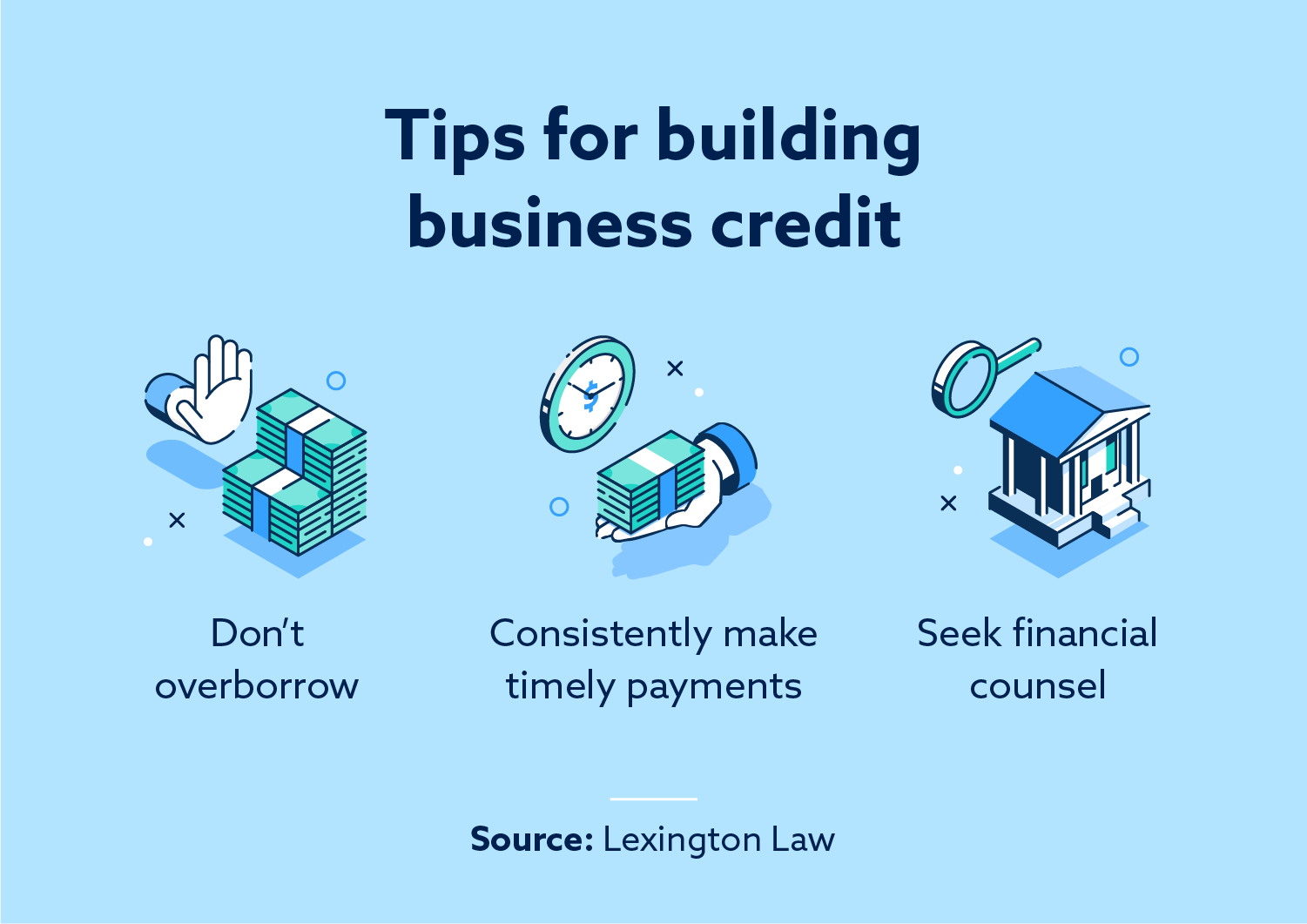
The information provided on this website does not, and is not intended to, act as legal, financial or credit advice. See Lexington Law’s editorial disclosure for more information.
An individual establishes their credit by making financial decisions that can be reported to credit bureaus. This same idea applies to businesses; applying for and using business credit cards alongside responsibly managing loans can increase your business credit score.
We’ll cover how to build credit for a business and discuss some of Lexington Law Firm’s credit building services.
Key Takeaways:
- Business credit is separate from personal credit.
- Business owners have unique options for building credit.
- Errors that appear on credit reports for businesses can be disputed.
Table of contents:
- Incorporate Your Business
- Acquire an Employer Identification Number (EIN)
- Apply for a business lines of credit
- Gain a Business Credit Card
- Get a D-U-N-S Number
- Frequently Check Your Credit Reports
- Set Up a Business Bank Account
- Prepay on Your Loans
- Ask For Trade References
- Collaborate with Other Businesses
- Boost your business credit with Lexington Law
1. Incorporate Your Business

Entrepreneurs can establish their businesses as distinct legal entities through incorporation. Incorporating your business is a necessary step toward applying for business lines of credit and opening a company bank account—all of which are vital to building business credit. During this process, you can let your state legislature know what your business structure is. Common business structure examples include Limited Liability Companies (LLCs), partnerships, and nonprofit organizations.
2. Acquire an Employer Identification Number (EIN)
Getting an Employer Identification Number (EIN) is crucial to getting any business off the ground. EINs are necessary to file taxes, and they help distinguish an individual’s personal financial history from their business. You’ll also need an EIN to perform a vast majority of actions, from applying for credit cards to securing loans.
3. Apply for Business Lines of Credit

Business lines of credit let entrepreneurs borrow funds to cover various business expenses. Responsibly using these funds and repaying your debts on time can significantly boost your credit score.
Secured business lines of credit require borrowers to put up collateral in exchange for lower interest rates and higher credit limits. Unsecured lines of credit may not require collateral, but they often have higher interest rates and faster repayment terms.
4. Gain a Business Credit Card
Business credit cards are very similar to lines of credit since you’re borrowing funds from a financial institution in both cases. Making purchases with a business credit card and consistently paying off your balance on time will raise your score. Furthermore, lenders will see your positive financial habits when they view your business credit report.
Credit cards are better suited for short-term situations where you’ll likely be able to repay the funds you’ve borrowed quickly. If you’re wondering how to get a business credit card, know that you’ll need a few key pieces of information on hand. Your full name, Social Security number and EIN are crucial to securing a credit card.
5. Get a D-U-N-S Number
The Dun & Bradstreet Corporation has provided business information and analytical data since 1841. They’re also the proprietors of the Data Universal Numbering System (D-U-N-S), a site-specific number that helps identify a business and assess credit risk.
You might have to provide a D-U-N-S® Number to help a potential partner or lender get a better sense of your company’s history. Gaining a D-U-N-S Number might also be a requirement for companies that need to meet specific Environmental, Social and Governance (ESG) goals.
To get a D-U-N-S Number for your business, you can call Dun & Bradstreet via their toll-free phone number 1-(866) 705-5711 or you can visit their website.

6. Frequently Check Your Credit Reports
Credit bureaus are normally meticulous when creating credit reports, but there’s always a chance of error. A debt you’ve already paid off could be misreported, or there could be a mix-up with your personal information (i.e., an outdated phone number or an inaccuracy with your birthdate). There can also be similar errors on your business credit report, so it’s important to check often.
7. Set Up a Business Bank Account
Once you’ve gained some experience operating your business, setting up a business bank account is an excellent way to build credit and credibility with potential customers. Responsibly managing your business bank account will help lenders get a better idea of how you handle finances—paving the way for better loans in the future.
8. Prepay on Your Loans
Credit reporting companies emphasize a business’s payment history when determining its creditworthiness. Paying your loans on time will cause your business credit score to rise, and prepaying your debts can qualify you for unique bonuses depending on the lender you’re working with.
Prepaying loans also makes it much harder to miss a payment date by accident. You can set up reminders on your calendar that will encourage you to pay ahead of your due dates. You can also set up automatic payments through your bank if you’re working with a lender for long periods.
9. Ask For Trade References
If your business frequently works with vendors, asking for a trade reference can be a great idea once you’ve built rapport with them. Trade references break down the payment details between your company and a vendor you’ve worked with. These references can play a major role in securing lucrative loans with strict requirements.
10. Collaborate with Other Businesses
Collaborating and networking with other businesses in your field has many benefits. Your peers can refer you to special loan programs and financing opportunities. Once you’ve built rapport with another business, they may offer trade credit rather than requiring payment immediately.
Trade credit is a unique business-to-business (B2B) arrangement that can help build business credit. Here’s an example of trade credit at work: Company 1 lets Company 2 rent 20 computers as long as Company 2 agrees to pay what they owe within three months.
